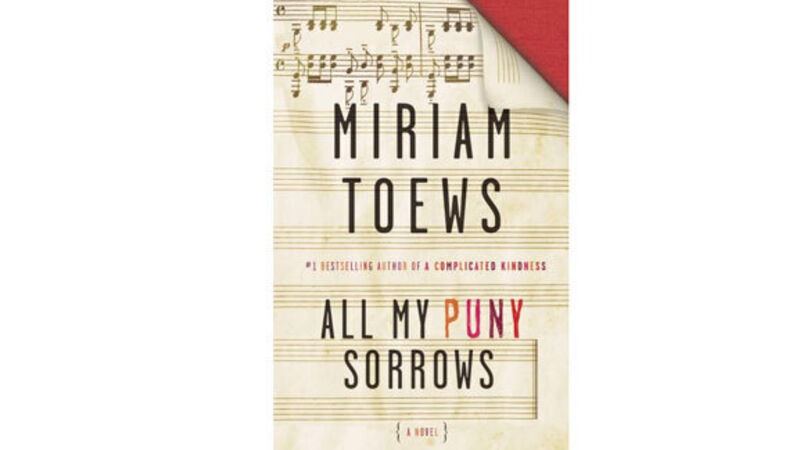All My Puny Sorrows

The plot of All My Puny Sorrows sounds unrelentingly depressing. Elfrieda, a beautiful, highly-talented pianist has attempted suicide, and not for the first time. Her sister Yoli sits at her bedside, trying to cajole her back to health. She is joined by Elfrieda’s loving husband and the two of them dodge calls from the pianist’s agent.
Elfrieda — known affectionately as Elf — recovers and goes home and her International tour seems back on track. But when Elf makes a request of the sister who loves her so dearly, Yoli realises nothing is as simple as it seems. Can she do as her sister asks?











